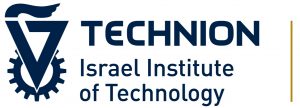During the twentieth century, the use of land and natural resources increased in favor of urbanization processes. These processes led to changes in the landscape, including damage and loss of ecosystem services provided to people . Simultaneously with urbanization processes, the population density of cities increase and can lead to closer physical proximity between the city’s residents and natural areas, which affects the relationship between them. This study examines the relationship between people and natural areas in the city of Haifa with an emphasis on cultural ecosystem services (CES) – intangible contributions that people receive from ecosystems that improve their lives via cognitive development, leisure, spiritual enrichment and more.
Due to the difficulty in identifying and evaluating the CES, this study develops a new methodology, ‘Focusing walk’, that allows participants to identify and express physical, mental and cognitive experiences while walking in nature. The results of the study contribute to understanding CES and offer planning insights for urban nature areas.

